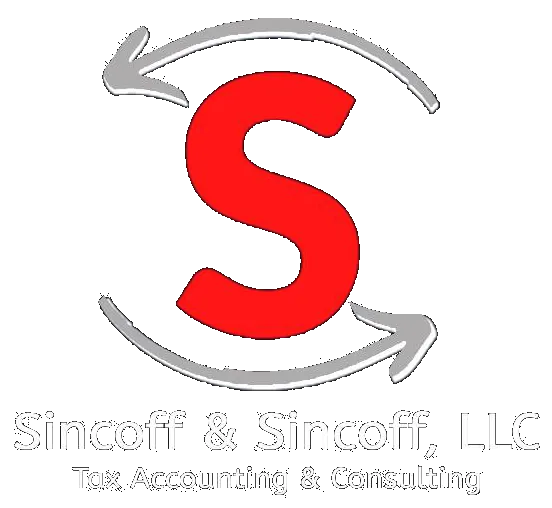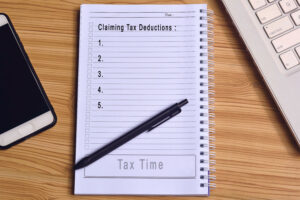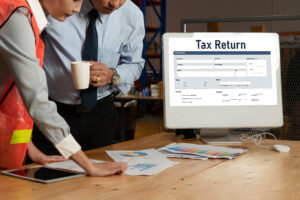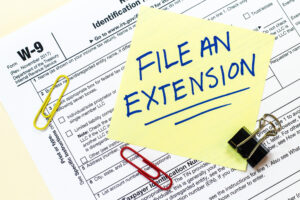Tax season feels like forever away when you’re in the middle of October, dealing with the daily chaos of running a small business. But here’s the thing—waiting until March to think about your NJ tax filing means you’re setting yourself up for a stressful, expensive mess. Fall is when smart business owners get their tax prep handled, before year-end hits and everything becomes ten times harder.
I’m not saying you need to file anything right now. But organizing your records, catching up on quarterly payments, and understanding what you’ll owe? That work needs to happen now, while you still have time to fix problems and make decisions that actually help your bottom line.
Why Fall Tax Prep Saves Money
Small business taxes in New Jersey aren’t simple. You’ve got federal obligations, state requirements, possibly local business taxes depending on your municipality, and don’t even get me started on sales tax if you’re selling products. Waiting until the last minute means you miss deductions. You make mistakes. You pay more than you should.

Small Business Tax Season Prep
Fall gives you breathing room. You can look at nine months of actual numbers and see where you stand. Maybe revenue is lower than expected—you have time to adjust estimated payments. Maybe you made more than you thought—you can buy equipment before year-end to reduce taxable income. These decisions only work if you’re planning ahead.
The other piece is finding help if you need it. Good accountants book up fast. If you wait until February to look for someone who knows NJ tax filing inside and out, you’re getting whoever has availability, not necessarily who’s best for your situation.
Get Your Records in Order First
This is the boring part nobody wants to do. But your tax prep only works if your books are accurate, and most small business owners I know are at least a few months behind on bookkeeping.
Block out time to go through everything from January to now. Bank statements, credit card statements, receipts, invoices—all of it. If you’re using accounting software like QuickBooks, make sure transactions are categorized correctly. That lunch you wrote off as a business meal? You need documentation. The mileage you’re claiming? You need a log.
New Jersey is particular about documentation. They’ll ask for proof if they audit you, and “I’m pretty sure I spent that on business” doesn’t count. Receipts, contracts, bank records—keep everything. I scan receipts into digital files because paper fades and gets lost, but however you store them, make sure they’re accessible.
Separate business and personal expenses if you haven’t already. I see too many small business owners running everything through one account and then trying to untangle it later. It’s a nightmare. If you’re still mixing personal and business, open a dedicated business account before year-end. Your future self will be grateful.
Review Your Quarterly Estimated Payments
If you’re paying quarterly estimated taxes (and most small business owners should be), fall is when you check if you’ve paid enough. Underpaying means penalties and interest. Nobody wants that surprise in April.
Pull up what you’ve paid so far this year. Compare it to what you’re actually making. If your income jumped significantly, you might owe more than you’ve been sending in. Better to know now and make a larger fourth-quarter payment than get hit with penalties later.
NJ tax rules can be tricky here because you’re dealing with both federal and state estimated taxes. Some business structures—like S-corps or partnerships—have different requirements. If you’re not sure what you should be paying, this is worth a conversation with someone who knows New Jersey’s specific rules.
The Fourth Quarter Payment Deadline
That final estimated payment for 2024 is due January 15, 2025. Mark your calendar now. Miss this deadline and you’re paying penalties even if you file your return on time and pay the full balance. The IRS and New Jersey both want their money on schedule.
Take Advantage of Year-End Deductions
Here’s where fall tax prep actually saves you money. Certain deductions only work if you act before December 31st.
Planning to buy equipment, computers, or furniture for your business? Do it before year-end and you can potentially deduct the full cost through Section 179. Wait until January and that deduction moves to next year’s taxes. Same goes for any needed repairs or maintenance on your business space.
If you’re paying estimated taxes and realize you’re short, prepaying some January expenses in December can reduce your taxable income for this year. Things like insurance, subscriptions, or annual memberships—if you’re paying for them anyway, paying early might make sense.
Retirement contributions are another big one. If you have a SEP IRA or solo 401(k), you have until your filing deadline to contribute, but setting it up requires action before year-end. Talk to your accountant about what makes sense for your situation.
Know What’s Changed for NJ Small Businesses
Tax laws change constantly. New Jersey made adjustments to the Corporate Business Tax over the past few years. There are different thresholds now for who needs to file, and some small businesses that didn’t have to file before might need to this year.
Passthrough Business Alternative Income Tax (BAIT) is something you should understand if you’re a partnership or S-corp. This New Jersey-specific tax can actually reduce your overall tax burden, but you have to elect into it. Most people miss this completely because they don’t know it exists.
Sales tax rates and rules shift too. If you’re selling products or certain services, make sure you’re collecting the right amount and filing correctly. New Jersey doesn’t mess around with sales tax compliance. The penalties add up fast.
Decide If You Need Professional Help
Some small business taxes are straightforward enough to handle yourself. Sole proprietor with minimal expenses? TurboTax might cover you. But if you’ve got employees, multiple revenue streams, or you’re incorporated, you probably need help.
A good tax professional familiar with NJ tax filing doesn’t just prepare your return. They find deductions you didn’t know existed. They make sure you’re compliant with state-specific requirements. They handle correspondence if New Jersey has questions.
Interview a few people now if you don’t already have someone. Ask what they know about small business taxes in New Jersey specifically. Ask about their availability between January and April. Ask what they need from you and when they need it.
Set Yourself Up for Next Year
Once you’ve got this year handled, think about systems that make next year easier. Monthly bookkeeping instead of yearly catch-up. Quarterly check-ins with your accountant. Better record-keeping from the start.
Tax prep doesn’t have to be this annual panic. Fall work now means smoother filing later, fewer surprises, and probably a smaller tax bill. That’s worth a few weekends of organizing receipts.





